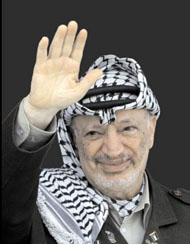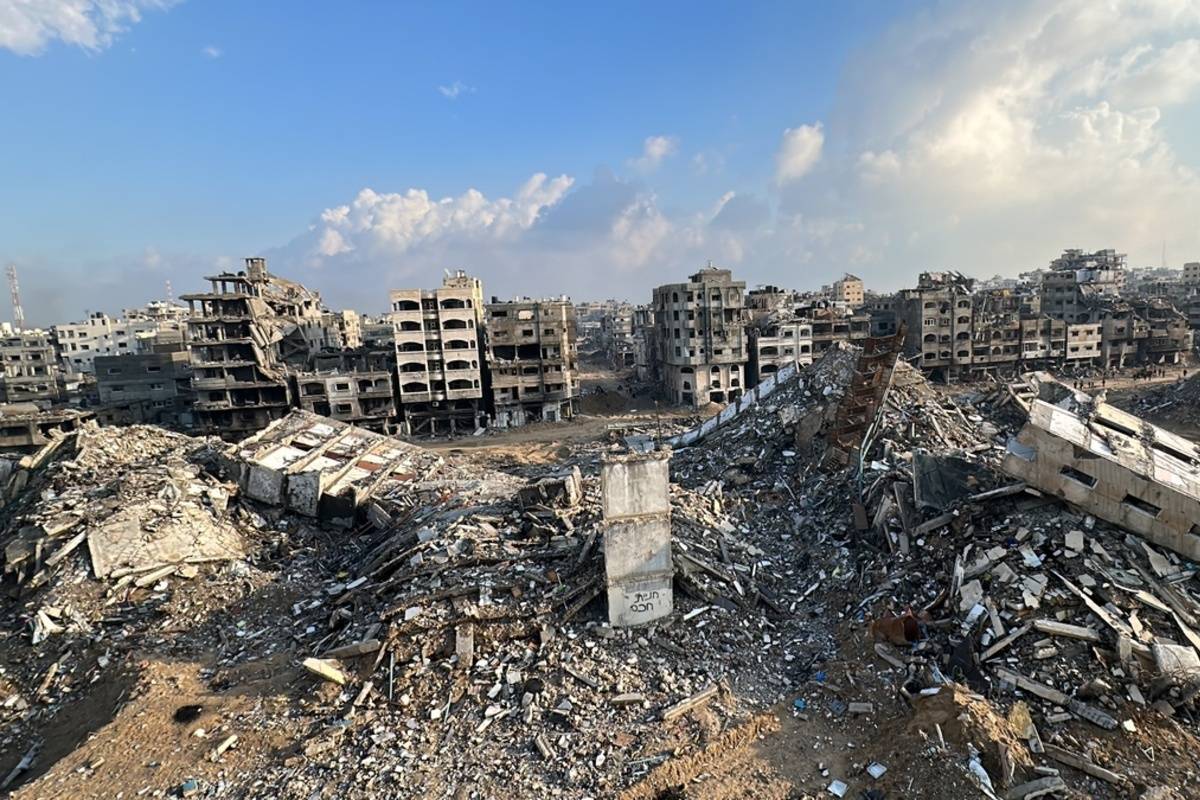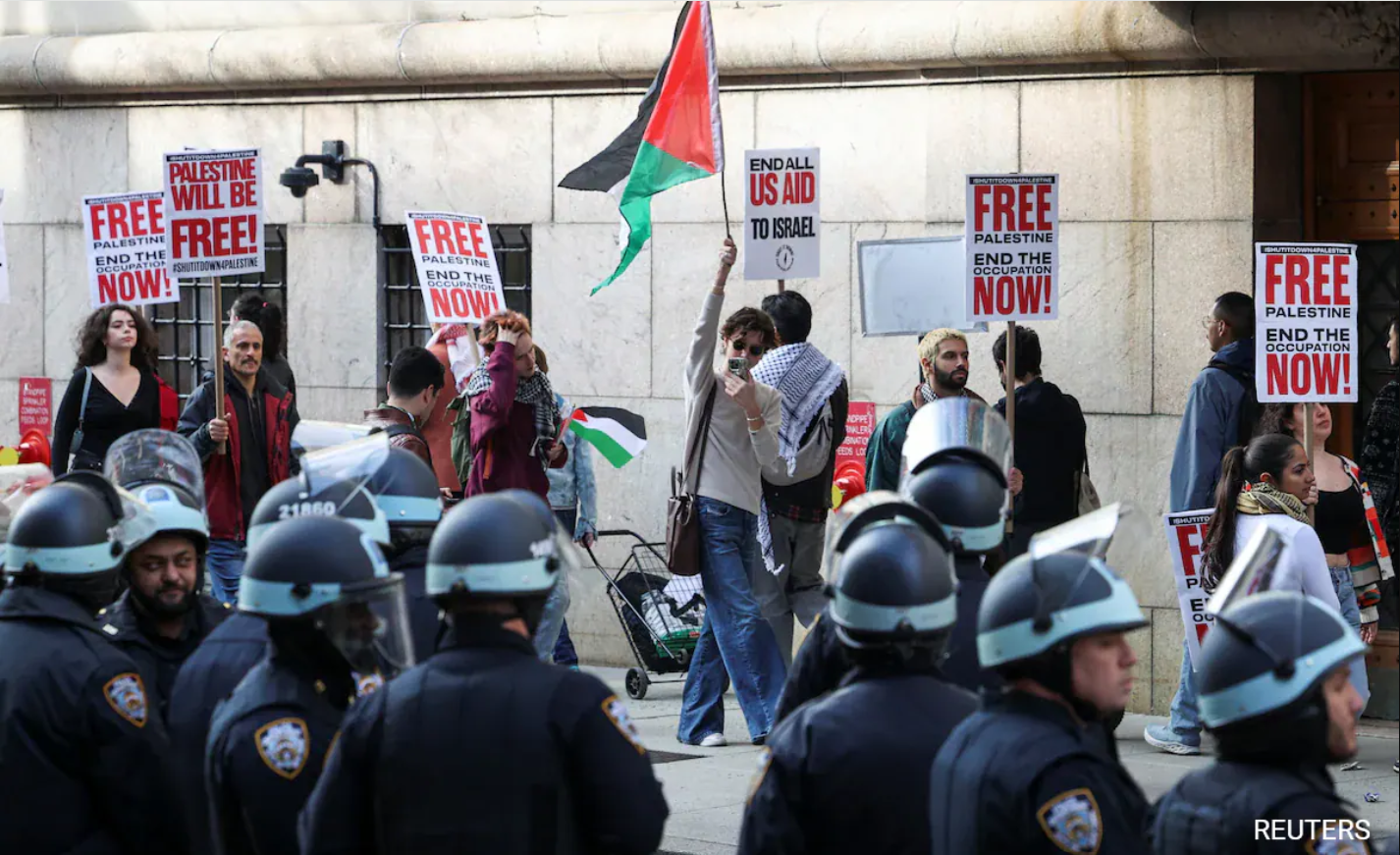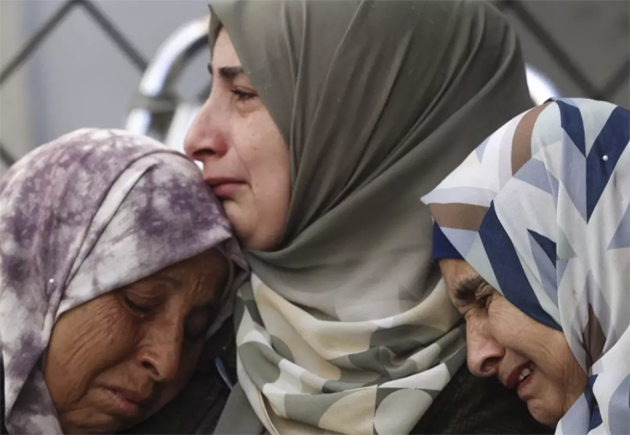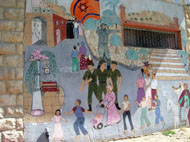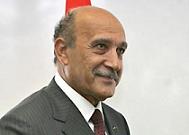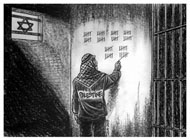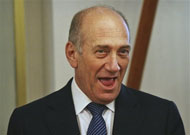Whilst celebrating the three year anniversary of Abu Ammar’s [Yasser Arafat] death, the Palestinians have ensured that his day of remembrance will now stand in tandem with another event in the annals of Palestinian history. His message of “national unity” will now be constantly overshadowed with the anniversary of the seven deaths which occurred at his memorial rally in Gaza – quite possibly, the most apparent example of “national disunity” in the history of Palestine.
November 11, 2004 marks the date when Abu Ammar died in Paris. The cause of death is still a highly contentious issue but what is not doubted is the influence he had on the Palestinians he left behind. One must just hark back to the crowds of supporters and speeches of the past weekend which more than aptly attest to his overwhelming backing amongst his people.
What started off as peaceful worship in memory of a greatly revered national icon at the Muqata in Ramallah on Saturday, ended on Monday at Al-Katiba Square in Gaza where reverence to the “spiritual father of Fatah” called to mind and reverberated the current political situation which caused factional division, indifference and violence to ensue.
The way in which each celebration differed from the other with regard to purpose, message and level of emotion evidently reflected the political mood at each respective event. The antithesis was astonishing. Although Abu Ammar would have been greatly moved by the support of his legacy both in Ramallah and Gaza City, he would have been undeniably terrified, shocked and disgusted with the events that followed the rally in Gaza where Palestinian turned on Palestinian.
Saturday’s affair was extremely formal and particularly stale. President Mahmoud Abbas welcomed esteemed Palestinian guests to unveil the completion of Arafat’s $1.75 million mausoleum in the presidential compound where Arafat had spent so much of his time under siege and is now where he rests. As Abbas placed a Palestinian flag on Abu Ammar’s grave, guests could cast their eyes on the 11 x 11 meter [which signifies the date of his death] mausoleum made of glass and beige Jerusalem stone. During the one minute silence in honour of Abu Ammar, guests could observe the mosque built and museum due to be opened next year. Finally, when Abbas spoke of fulfilling his predecessors dream “to be reburied in Jerusalem, which he loved ... Jerusalem, which he tried to make, and which all our people are trying to make, the capital of the Palestinian state", one could examine the mosque’s minaret which houses a green light which acts as a beacon, shining forth to Jerusalem.
The opening of the compound to the public on Sunday was a more exciting and joyous occasion. Palestinians from all over the West Bank, children on school trips and local families from Ramallah flooded onto the streets to celebrate Abu Ammar. From the Muqata all the way to the Manara in the centre of town there was not a spot of road or pavement to be seen. Cars were covered with Palestinian flags, kuffiehs and yellow Fatah flags with their idol on them, blurting out Fatah anthems and beeping their horns. Palestinians also draped themselves in flags and kuffiehs, on their waist, over their shoulders, round their neck or even all three. They paraded in the streets shouting “Abu Ammar”, waving proudly the Palestinian and Fatah flags. The atmosphere was hectic but friendly with everyone there to pay their respects to their hero.
Walking adjacent to the Muqata toward the entrance, one could see hundreds of posters of Arafat alongside the Dome of the Rock, occasionally accompanied also by his successor, Mahmoud Abbas, desperate to affiliate himself with Abu Ammar at a time when his competence is in question. It was also necessary to weave through the numerous bodies, which contained a huge percentage of young teenagers, most of whom would have been alive during the Al-Aqsa Intifada but surely too young to recollect Abu Ammar, let alone his policies, message or mode of governing. In all probability, these youths were sent by their parents to respect the icon of their generation – an emblem of everlasting hope, a beacon of trust and a dedicated individual who fought tirelessly for Palestinian rights and stood as “a reflection of the Palestinian people”, as the head of the PLO negotiating department, Saeb Erekat commented.
In this way, the younger Palestinian generation were honouring a mysterious spirit more akin to the dominion of myth or legend – a semi deified leader. The older generations obviously recognise the importance of a strong figurehead on a developing psyche and therefore trust that Abu Ammar will stand in immortality as a role model of inspiration and encourage their children to persevere with the cause.
The final celebration in memory of Abu Ammar was due to be at Al-Katiba Square in Gaza City. Although Fatah’s political nemesis Hamas had seized the Gaza Strip in June, any movement to prevent the rally from happening would have been political suicide. However, it was thought that Hamas would either quell any substantive rally or one would just not materialise with morale low as a result of the area being in such economic and humanitarian disarray.
It was therefore a surprise when news agencies estimated that there were 250,000 people present for the Abu Ammar memorial in Al-Katiba Square and a further 200,000 who were unable to reach the rally because of Hamas checkpoints at the north and south of Gaza City. With Hamas’ 365km2 stronghold populated at 1.5million, a reported third of the population had attended or attempted to attend the tribute to Fatah’s co-founder.
There had been Hamas undertones at the other celebrations but this vast show of solidarity in Gaza boosted the speakers’ credibility and gave them the opportunity to use Abu Ammar’s memory as a propaganda tool in an intense vocal attack on Hamas. This was specifically relevant as the night before 10,000 Fatah supporters had clashed with Hamas police following their remembrance march in Bureij refugee camp in central Gaza. Therefore on Monday, Fatah leader, Ahmad Hillis addressed the crowd saying, “You affirm today that the Gaza Strip will remain Fatah’s stronghold and will not be torched by the mutineers”. Fatah Chief in Gaza Zakaria al-Agha also stated, “We say to Hamas and these armed militias, stop your crimes”. The crowd also started shouting “Shiites” in reference to Hamas’ reliance on Iran and its ally Syria for support.
Whether the blame lies with Hamas for their inexperience in administering and controlling rallies or with Fatah for firing first, matters not. What resulted was Hamas using live rounds to fire at the crowd which proved deadly for seven people, injuring over fifty. The ramifications? Former Fatah enforcer in Gaza, Mohammed Dahlan, promising that “victory over those killers will be very soon” and swore not to forget “the martyrs’ blood”.
One of the reasons Hamas had allowed the rally to go ahead was expressed by their spokesman Fawzi Barhum who admitted that the Islamic Resistance group may not have always seen eye to eye with the Palestinian Authority president but nonetheless they still honoured and respected him because “he refused to give up the rights of our people in this holy land”.
This feeling of mutual appreciation is clear from Abu Ammar’s words also. “Even if it’s a military wing, one should not forget that the movement took an active part in the Intifada”. In a speech on Palestine TV in 1997, Abu Ammar talked about the importance of unity amongst Palestinians.
“…great battles lie before us, and it will be now more difficult than in the past...let us each commit one to another and let us commit ourselves before Allah and the Palestinian people that we shall lead the coming battle as we have led previous battles. An oath is an oath and a promise is a promise. The whole world stands on us, while they are alone. They are afraid, but we are not. We cling to the oath and the promise. The Palestinian people are faithful to its oath, the one which we swore upon the first day when the initial shot was fired and the first of our martyrs fell. I must say these things so that you will know where, how, and in which direction our movement is heading. We are marching together to Jerusalem, Jerusalem, Jerusalem."
Abu Ammar would be the first to oppose that his name be used in vain to incite frenzy and fighting between Palestinians.
Internationally, Abu Ammar may be perceived as an endorser of terrorism, who blindly refused to accept the peace agreement offered by Ehud Barak at Camp David in 2000. In addition some may remember Abu Ammar siding with Saddam Hussein when the latter invaded Kuwait in 1991 and famously confirmed in a letter in 1993 “we will remain together until we reach Jerusalem, with God’s help”. Nevertheless, in Palestine, as his support suggests, he is the symbol of Palestinian unity against the common evil that plagues all Palestinians. What happened in Gaza was not a celebration of his message.
Unfortunately, the anniversary of his death and with it, his message of unity, will be documented in the archives as an occasion where Palestinians died fighting, not for independence against the occupation, but each other.
It is difficult to pass judgement on a man like Abu Ammar when modern history presents us with no other men who operated under such circumstances, namely illegal occupation and international inaction. It is therefore fitting to turn to the closest available comparison – South Africa.
Nelson Mandela, the pioneer of South Africa’s abolishment of apartheid stated that “Yasser Arafat was one of the outstanding freedom fighters of this generation, one who gave his entire life to the cause of the Palestinian people. We honour his memory today.”
Did the Palestinians really honour his memory in Gaza?



